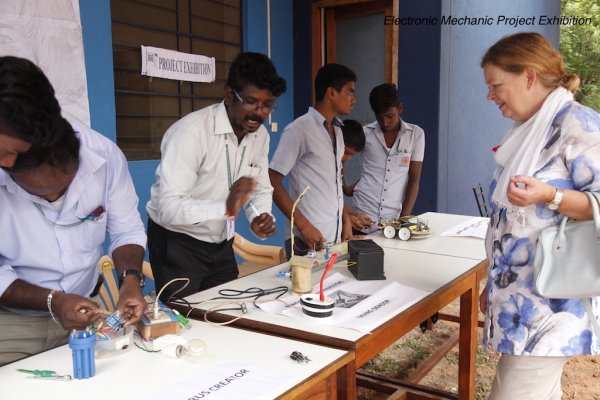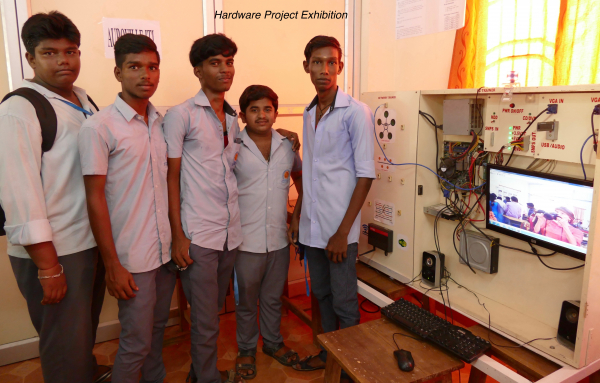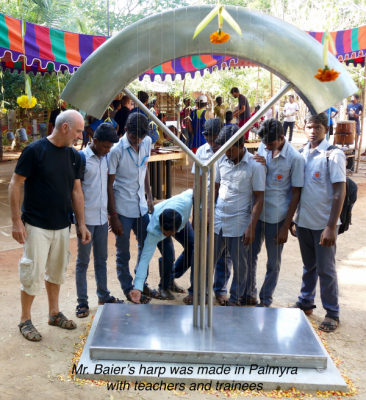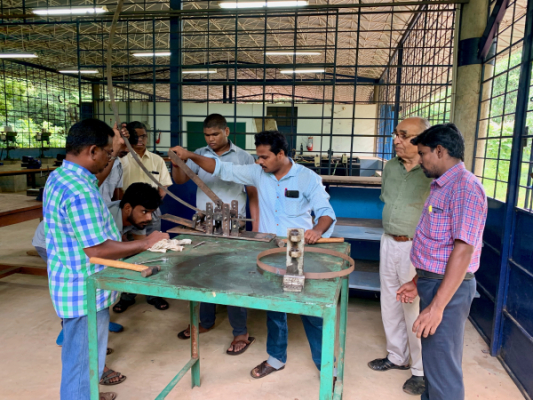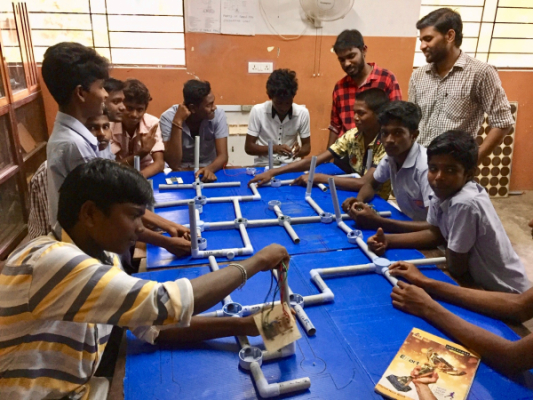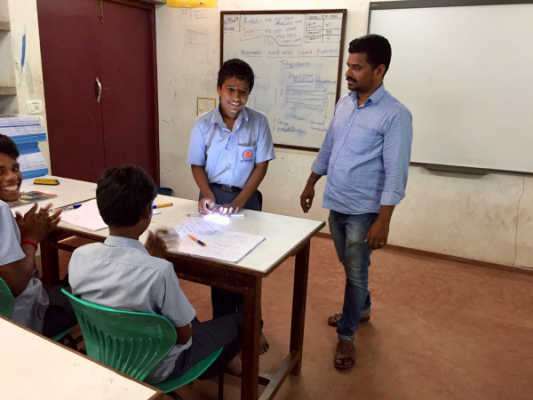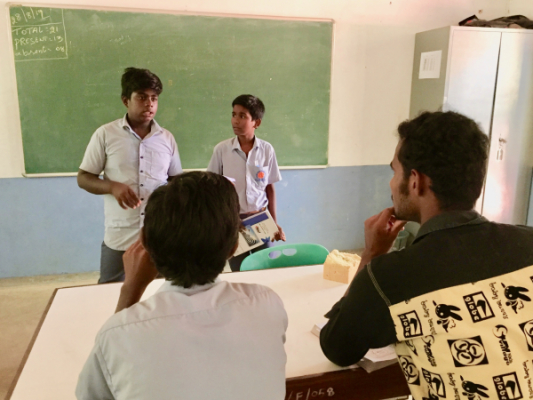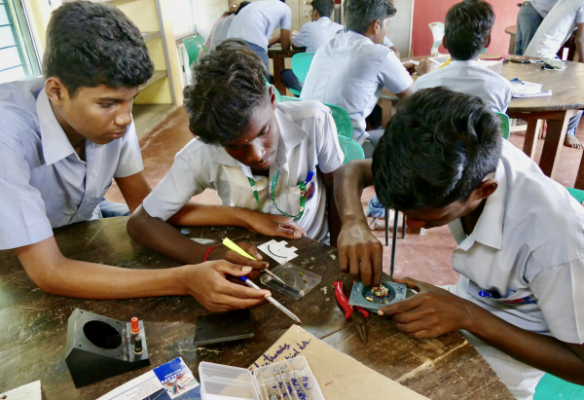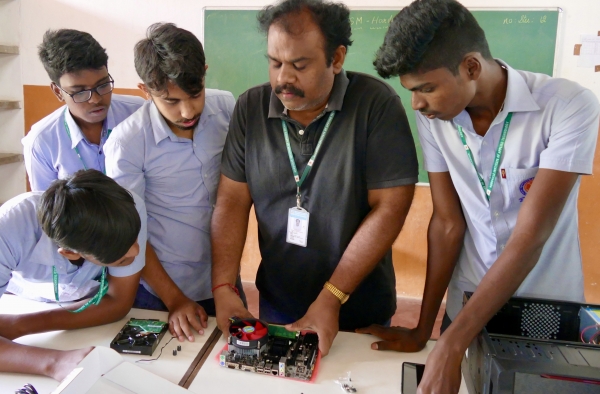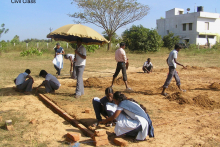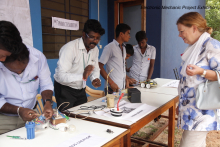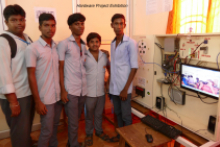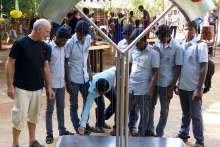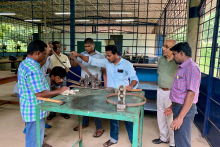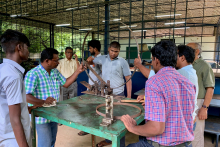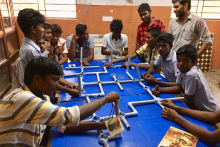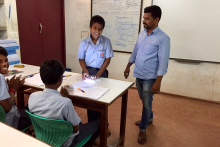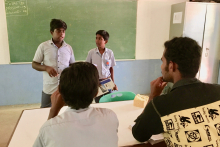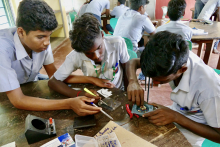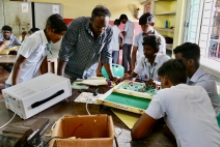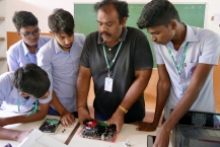Project-based learning is a holistic and practice-oriented approach in learning by doing. The focus here is on learning by working on real life projects i.e. repairing of a fan.
On a real life project, trainees practice implementation of knowledge and skills, tools, machines and material needed, and prepare a plan to create it. They would learn on a project specification, design, processes involved from design to dispatch, meaning and importance of quality management at each step, to practice soft skills such as communication, teamwork, as well as to make a presentation and to document what is needed to complete the project.
On project trainees acquire knowledge and skills directly needed in the project, which may be different from the prescribed syllabus i.e. in a solar lamp project Fitter students learn turning, milling, and many more skills. At AIAT, all courses are conducted using this methodology.

